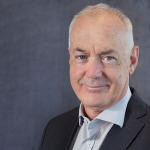By Associate Professor Des Graham
On behalf of the MS Australia Board, I am delighted to present the MS Australia ‘A world without MS: Strategic Plan 2022–2026’.
A single national body now represents Australians living with MS after an extensive review of our governance and operations in 2019 and 2020. The MS Australia Board endorsed an independent expert’s recommendation to bring MS Australia and its research subsidiary MS Research Australia together, which heralds a new era for people living with MS. In the shadow of a tough operating market for not-for-profits following a series of major national structural and regulatory reforms, the review identified ways to better meet the current and future needs of people living with MS and the ongoing pursuit for a cure.
The resultant changes mean MS Australia is becoming a more robust and efficient organisation. This has also strengthened our resolve and capacity to advance our research agenda alongside our tireless advocacy for people living with MS. The governance realignment is nearly complete, and with the appointment of Rohan Greenland, MS Australia’s new CEO, we are excited about the future. In particular, the implementation of our inaugural Strategic Plan and greater sustainable partnerships with our state and territory Member Organisations, consumers, carers, researchers, institutions, and other stakeholders.
This Strategic Plan has drawn on extensive feedback from people living with MS, their family members, friends and others affected by MS. I am delighted that so many stakeholders trusted us and shared their views. Some 3,000 people responded to our 2021 Research and Advocacy Priorities Survey – an incredible result and quite possibly the largest point in time feedback from the Australian MS community! Many others participated in dynamic focus groups and feedback sessions. We also heard from health professionals, our member organisations, staff and key stakeholders in our networks in Australia and overseas. I am confident that our process has been robust, inclusive and well informed. I want to thank everyone who participated in our strategic planning process.
Significantly, the most important priority identified during the feedback process is for us to supercharge funding for research. It is the pinnacle and aligns with our mission to accelerate research toward the prevention, better treatments and a cure for MS. You will see this priority permeates a large part of our strategic intent.
In closing, I would like to thank all Australians who have directly and indirectly contributed to MS Australia’s agenda to advocate for all people living with MS and carers and supercharge our research agenda to find the cure. I look forward to working with each and every one of you, keen to help ensure MS Australia’s future success.
To view our ‘A world without MS: Strategic Plan 2022–2026’, please click here.







